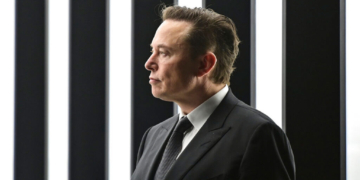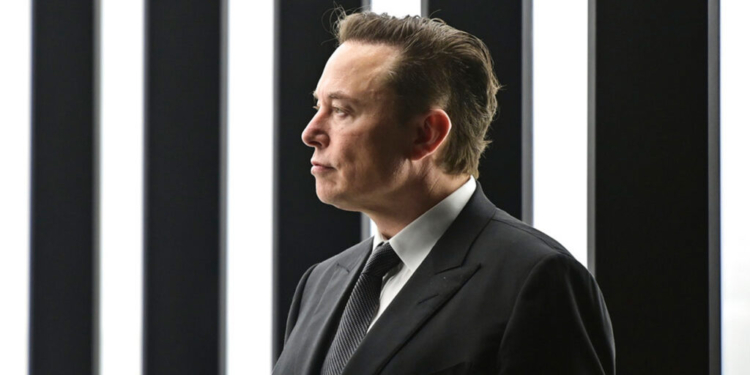President Joe Biden’s administration will rely on billionaire Elon Musk’s Starlink for its internet access agenda after the Federal Communications Commission (FCC) previously rejected a massive award for its parent company SpaceX, The Washington Post reported on Wednesday.
The FCC in December reaffirmed its rejection of an $885 million award for Starlink to provide fast broadband internet service to over 640,000 homes and businesses in rural areas, with Commissioner Brendan Carr alleging the decision was aligned with other examples of the Biden administration’s “harassment” of Musk’s companies in his dissenting opinion. Starlink is a satellite internet provider and it is anticipated to participate in the Biden administration’s $42 billion initiative for getting fast internet to all American households amid its struggles to affordably connect rural areas, officials told the Post.
View of the solar eclipse from a Starlink satellite on orbit pic.twitter.com/RAwT2uQUUh
— Starlink (@Starlink) April 8, 2024
The Biden administration’s Broadband Equity, Access and Deployment (BEAD) program will primarily rely on the utilization of fiber-optic cables, but Starlink could be necessary for rural locations where fiber is prohibitively expensive, National Telecommunications and Information Administration (NTIA) chief Alan Davidson told the Post.
“States can set an ‘extremely high-cost’ threshold,” Davidson told the Post. “For locations that are more expensive than that threshold, they can use alternate technologies like satellite.”
Each state is independently making plans and choosing services providers, but Davidson told the Post he anticipates “many” of them will contain a provision granting Starlink the opportunity to apply for funding.
“Every state I have talked to wants to get fiber to as many unserved and underserved communities as possible,” New Street Research policy analyst Blair Levin told the Post. “No state wants to use Starlink, but the math may not work in some without it.”
Biden in 2021 signed the Infrastructure Investment and Jobs Act, which designated over $42 billion for the BEAD program, according to the NTIA. The funds are intended to link over 8.5 million homes and businesses to broadband internet across the United States, according to a White House fact sheet.
However, the Biden administration is struggling to deliver on its objective to provide rural Americans with more high-speed internet access, The Texas Tribune reported in February.
The FCC decided to reaffirm its previous rejection because Starlink failed to show it was capable of meeting the speed requirement to provide the services outlined in the Rural Digital Opportunity Fund initiative.
“Starlink is arguably the only viable option to immediately connect many of the Americans who live and work in the rural and remote areas of the country where high-speed, low-latency internet has been unreliable, unaffordable, or completely unavailable,” SpaceX Vice President of Legal Christopher Cardaci wrote in a December letter to the FCC following its decision.
SpaceX, the NTIA, FCC and the White House did not immediately respond to the Daily Caller News Foundation’s request for comment.
All content created by the Daily Caller News Foundation, an independent and nonpartisan newswire service, is available without charge to any legitimate news publisher that can provide a large audience. All republished articles must include our logo, our reporter’s byline and their DCNF affiliation. For any questions about our guidelines or partnering with us, please contact [email protected].



























 Continue with Google
Continue with Google